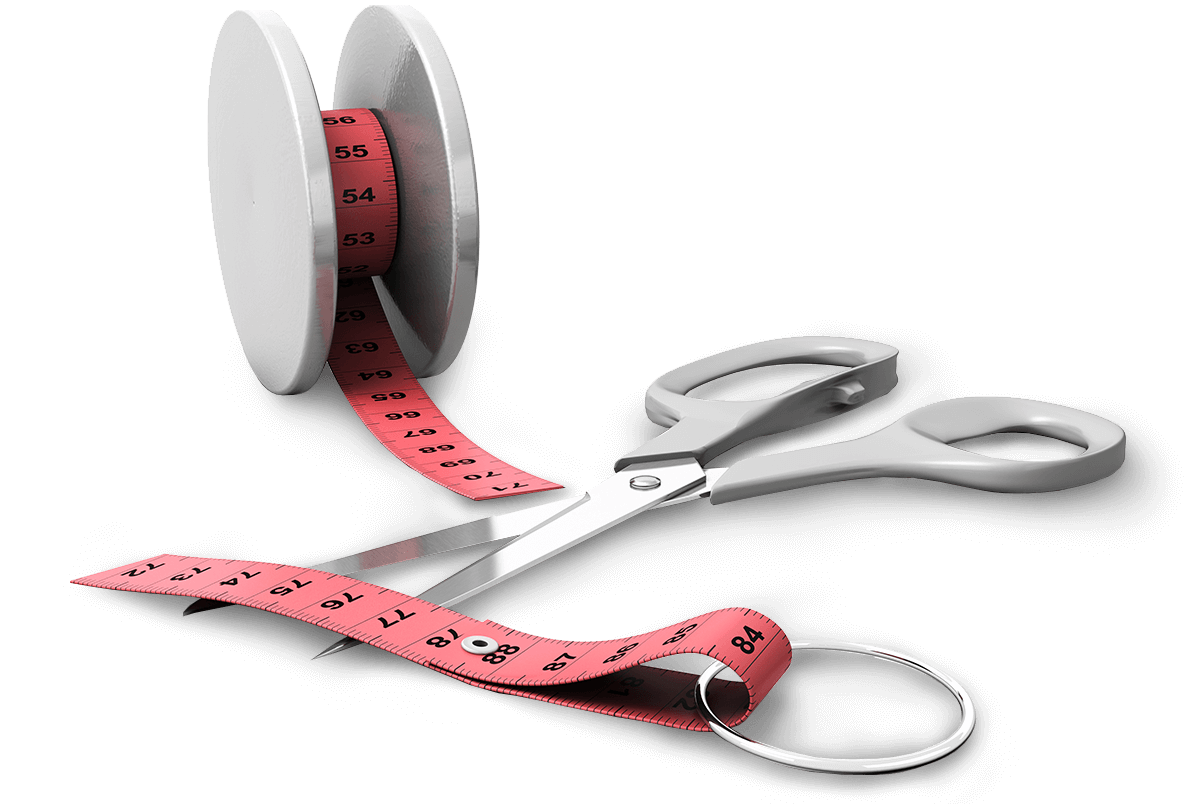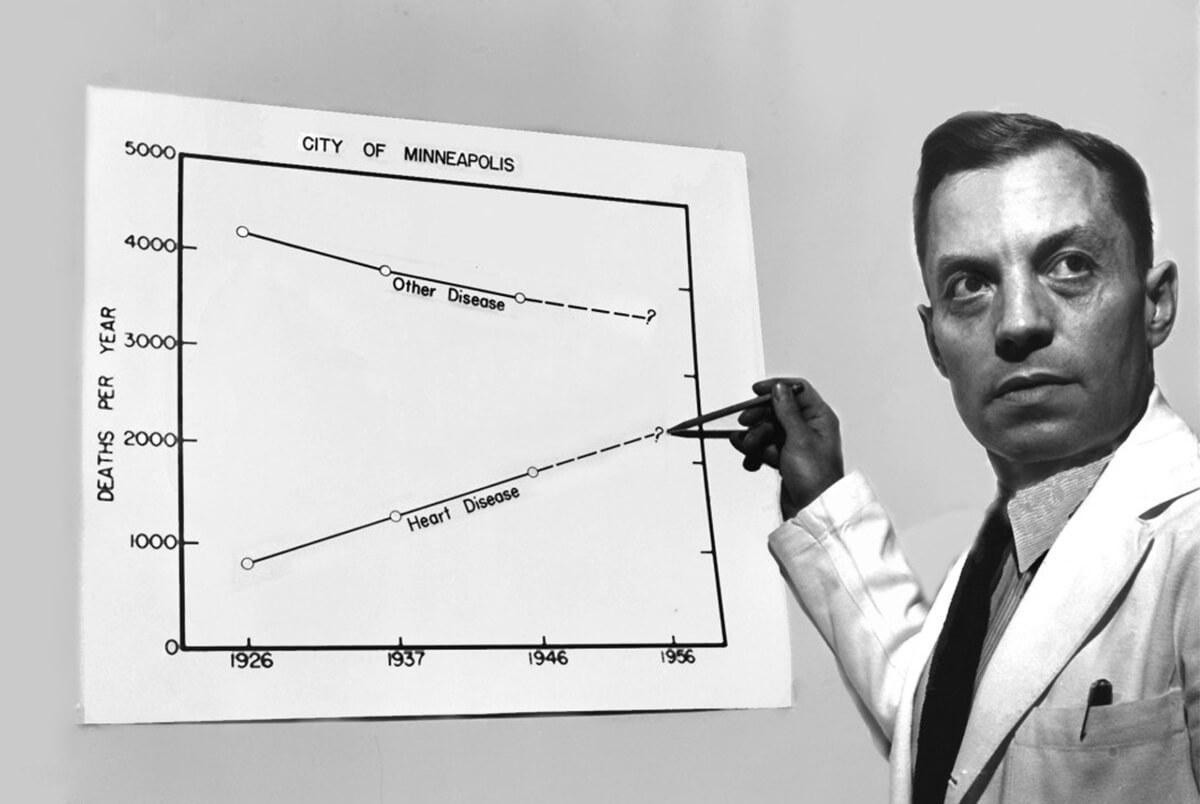The Yo-Yo-Effect
The unloved phenomenon of conventional diets with greatly reduced energy intake.
Everything about the Yo-Yo-Effect!
Who does not know it, the feared yo-yo effect? Barely you have laboriously starved yourself a few lbs off with the newest fad diet, then eat normally again - and the scales show a higher number after the diet than before. Nutritionists call this the yo-yo effect. Nowadays it's also called weight-cycling, when the weight often goes downhill and then steep uphill again.
About 82% of all women have tried diets in the last two years [ABDA; Germany; infas; 3,372 respondents; 16 years and older] - but success is usually only short-term. Unfortunately often, due to the famous yo-yo effect, the pounds then add up from diet to diet and the starting weight for the new crash cure becomes higher from year to year. Thus, losing weight becomes increasingly difficult. The already high risk of diabetes in overweight people who cycle (meaning they experienced the yo-yo effect more often) also increases to 80 % as scientists found out from the EPIC study [Ärzte Zeitung App, 27.11.2014].

Find out how to effectively avoid the yo-yo effect!
If you decide to change your lifestyle with Metabolic Balance, you do not need to fear the yo-yo effect. Metabolic Balance is not a short-term diet, but a change in diet and lifestyle according to the latest scientific findings which can be applied into the daily life long-term. And this is exactly what makes it different from other diets! Other programs aime for short-term weight loss. Those who lose weight in the long term with the help of an optimally coordinated metabolic change can also enjoy the long-term effect: weight can be kept off soundly.
And there is a simple medical explanation for this.

Protein stops the Yo-Yo-Effect
The founder of Metabolic Balance, Dr. med. Wolf Funfack, already knew this decades ago through his intensive nutritional studies: Protein stops the yo-yo effect!
Most diets are low in carbohydrates and/or calories and nutritionally very one-sided. And this is the reason for the yo-yo effect. With this kind of diets the body draws out of it's own proteins, i.e. it uses its reserves - the muscle protein. When such diets are completed, the body tries to replenish the protein deficit that occurred. At the same time, the fat deposits are replenished until the body has regained its 100% protein content.

Minnesota-Experiment
As early as 1950, scientists were working on the yo-yo effect. The best explanation of this phenomenon is the Minnesota Experiment [Dullo, A.G. et al Am.J.Clin.Nutr. 1997; 65: 717-723 Poststarvation Hyperphagia and body fat overshooting in humans] by Prof. Ancel Keys. American soldiers drafted into military service were given the choice of either being at the front in Europe or participating in a dietary experiment. Thus 32 healthy, normal weight men were isolated for 56 weeks in a metabolism laboratory. The experiment was carried out in 3 phases.

Reduce calorie intake and increase it again
In the first 24 weeks, the soldiers received only 50% of their actual calorie requirements with a nutrient distribution of 17% fat, 25% protein and 58% carbohydrates. During these 24 weeks, the soldiers lost 70% of their original body fat and 17% of their total protein content - and were also constantly hungry and discontent.
In the 2nd phase, the soldiers received 100% of their calorie requirements again with the same nutrient distribution as in phase 1. The 2nd phase lasted 11 weeks. In this phase, body fat increased by 50%, so that the soldiers had a body fat of 80% at the end of the phase. However, the soldiers' body protein increased by only 5% during the same period, i.e. there was still a deficit of 12% of their body protein.
While fat content increases, the protein reserves increase much slower
In the third and last phase (8 weeks) the soldiers were free to choose what and how much they wanted to eat. On average, the distribution of nutrients was 35% fat, 14% protein and 51% carbohydrates. The result of this phase was that the soldiers had consumed 50% more calories than their body weight would have required. In addition, the soldiers had already accumulated a total of 174% body fat at this point, i.e. 74% more body fat than at the beginning of the experiment. However, the soldiers' total protein was only 98%.
Humans have a protein memory and react to the loss of the body's own protein with increased hunger until the original protein content of 100% has been restored.
Happy, slim and full without Yo-Yo-Effect
People who follow one-sided diets such as cabbage soup diets or juice procedures do not lose fat, but usually only muscle mass. During the diet the mood sinks to zero because the organism does not get what it needs. And afterwards the mood does not improve either, because then the yo-yo effect sets in.
The positive protein effect was also confirmed by the Europe-wide research project Diogenes (Diet, Obesity and Genes) on weight loss: conclusion - a protein-rich diet prevents weight gain better than diets that forgo protein intake. And, balanced, high-protein diets also offer other advantages. On the one hand, it counteracts muscle loss during a diet and on the other hand it makes you feel full for a long time. The study results also show that the study participants gained less weight after a reduction diet if they increased the protein content of their diet.

Dr. med. Wolf Funfack (MD) explains: that's how the yo-yo effect develops!
All these diets, both carbohydrate-reduced and calorie-reduced, the body consumes a lot of immanent protein. The reason is, that certain organs in our body (the brain, the reproductive organs, and the red blood cells) that rely solely on the use of glucose. These cells cannot burn fat to retrieve energy. Muscle cells, on the other hand, are able to burn fat if there are not enough carbohydrates available. But the brain can only burn carbohydrates. The brain (and reproductive organs) is an organ that can absorb glucose into the cell, even without insulin interference.
With insulin resistance, we have noticed that the muscles simply reduce the insulin receptors and no longer take up sugar when they are full. However, if there is no sugar in them, the cell needs insulin so that the insulin opens these doors and glucose can enter the cells. This is different in the brain, where you can see how important glucose is for the brain. Thus, if we eat a hypocaloric diet, i.e. with few calories and few carbohydrates, the brain gets very little glucose. And so that this cannot happen, the body has the ability to build up glucose again from the body's own protein. This process is called gluconeogenesis. In this process, the body's own protein is converted by biochemical processes into sugar, i.e. glucose. The loss of endogenic protein leads to increased hunger, as the body wants to replenish its reserves as quickly as possible.

Avoid the Yo-Yo-Effect with Metabolic Balance
During the metabolic conversion with the personalized Metabolic Balance nutrition plan, it is ensured, that all three food components - proteins, fats and carbohydrates - are eaten in sufficient quantity and in a balanced ratio. By doing so, the body does not have to burn its own protein to produce glucose. This means that practically no yo-yo effect can occur.
A healthy food plan according to the Metabolic Balance method is not a short-term fashionable diet, but a sustainable metabolic program which should be permanently integrated into daily life. For more vitality and health. And if, after a change in diet, you decide to fall back into old unhealthy eating habits and patterns and eat as before - you need not be surprised if you cannot maintain your desired weight. But those who have recognized that a healthy diet is an elixir of life and stick to it will be rewarded with good health, increased vitality, new self-confidence and their desired weight.
We at Metabolic Balance feel confirmed in our mission:
With the right nutrition program you gain vitality and lose the pounds along the way - without the yo-yo effect.
Metabolic Balance of course also means: pleasure! You do not need to count points or calories.
Immerse yourself in our world of nutrients and recipes and see how you can avoid the yo-yo effect - the tasty way with Metabolic Balance.


